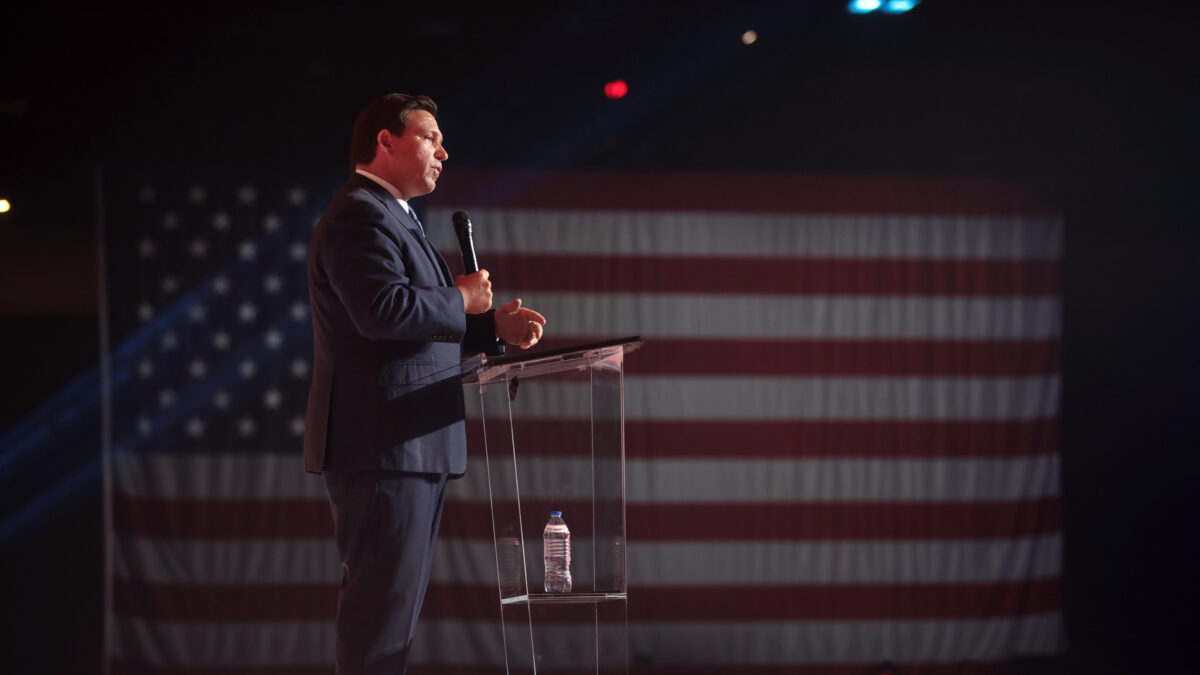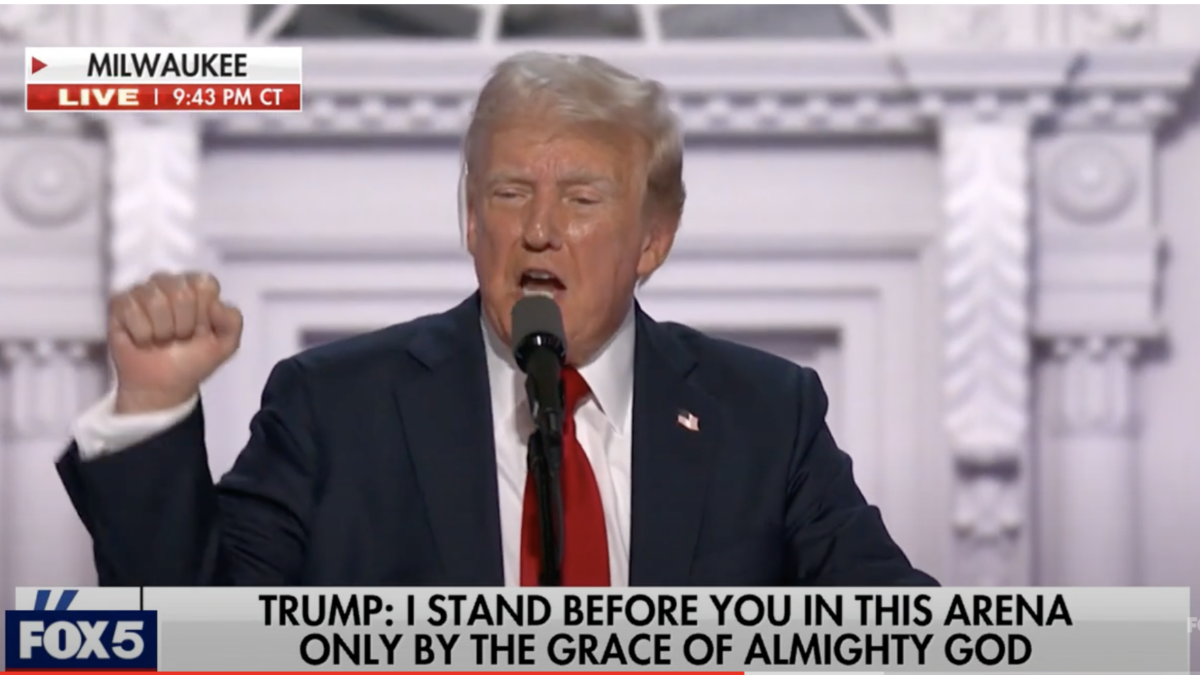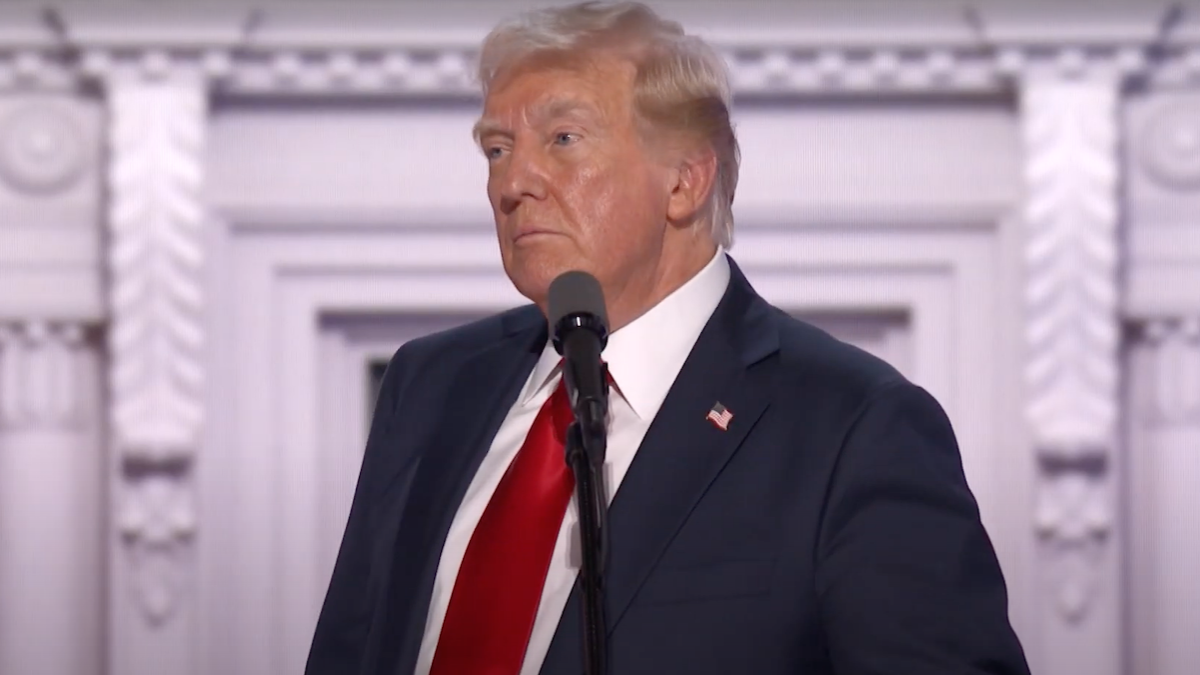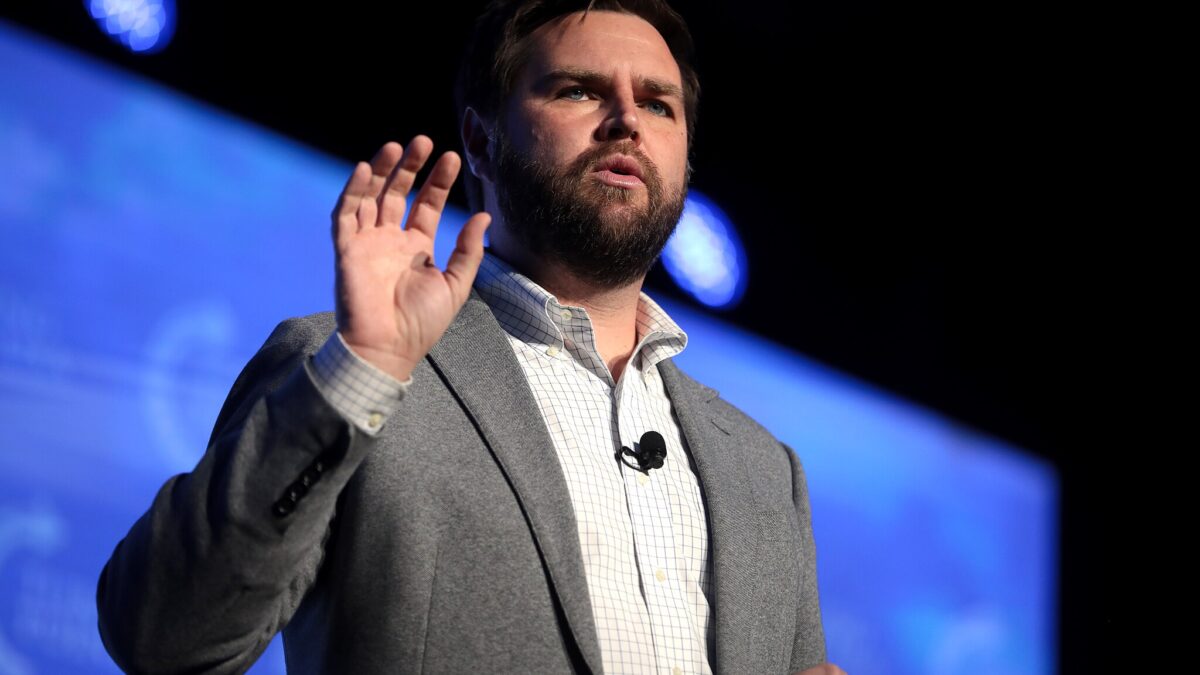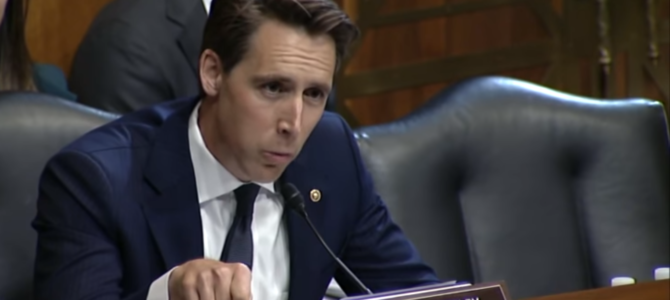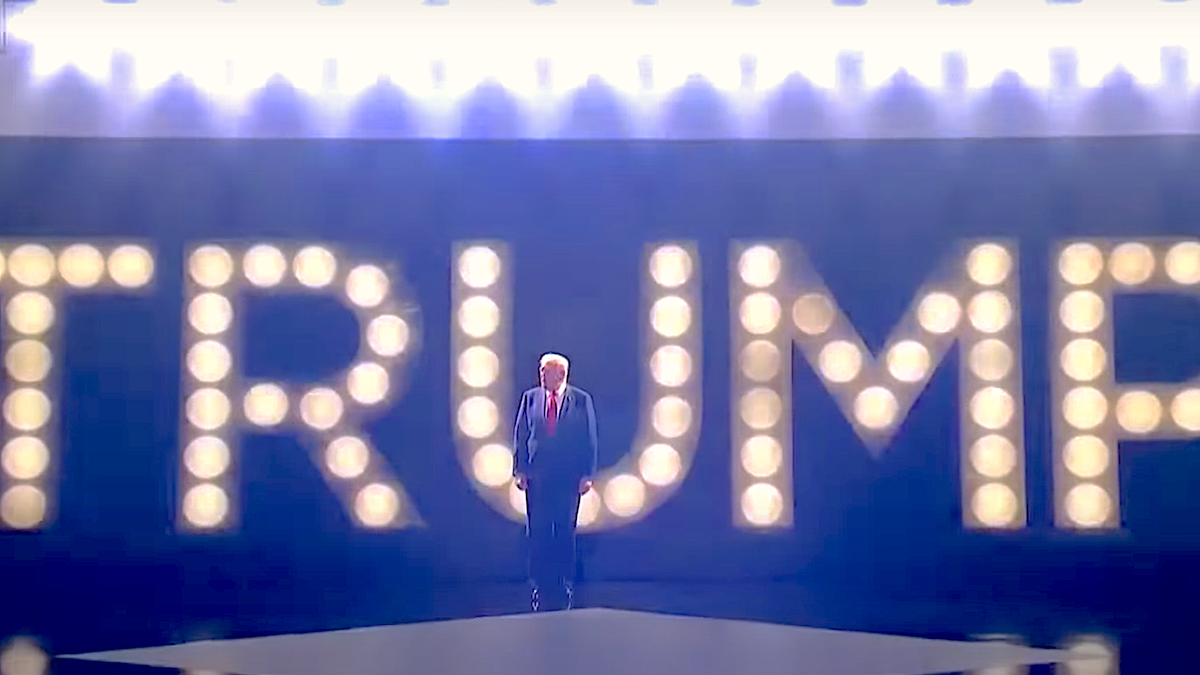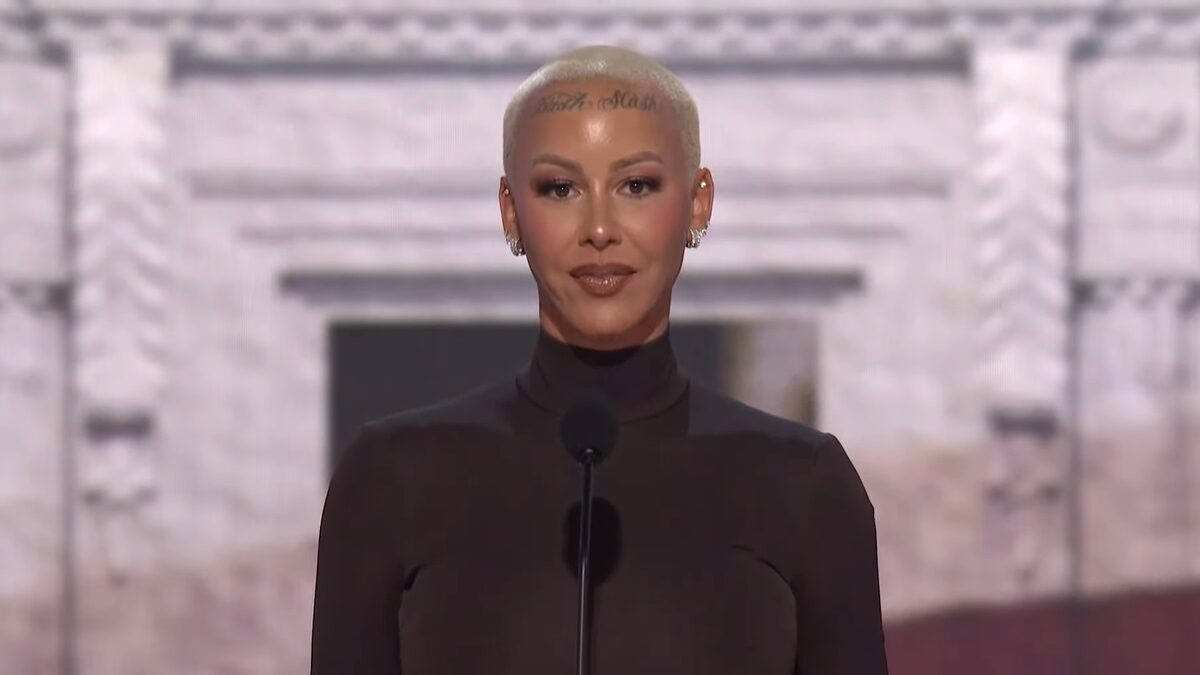Last week, Florida Gov. Ron DeSantis was asked by “Meet the Press” host and Democrat activist Kristen Welker whether he thought “the former president’s legal troubles are the reason that you’re still in this race.”
The nation’s most influential and successful governor answered, “[H]ad Alvin Bragg not politicized this back in April, I think probably the primary would be looking different. I mean, I think that that gave the former president more support. I think people felt that he was being treated unfairly, which he was, in that circumstance.” He added, “[T]hat, I think, has been a very important inflection point in this, because it highlights the weaponization of justice by some of these left-wing prosecutors. But here’s the thing, ultimately: It’s not about the past. It’s not about all these other issues.”
DeSantis was correct to note that the Alvin Bragg indictment was an “inflection point” for Trump’s success, but the governor would be wise to understand that his response to that indictment was also an inflection point for his own struggles with the GOP electorate.
Trump’s polling strength flows from his three large bases of support. He has the Make America Great Again (MAGA) enthusiasts who love him, his policies, his campaign, and even his brash personality. They’re the “ride or die” part of the base.
Trump has a second contingent of supporters who are simply nostalgic for 2019 and the type of presidency Trump had at that time. These are people who recognize that the country and world are materially worse off under a Biden administration and wish to have a president laser-focused on a thriving economy, constitutional judges, a secure border, and a foreign policy that defended national interest strongly while spreading peace globally.
The third base of support is people who may not even like President Trump. Heck, they may even strongly dislike him — but they abhor what Democrats are doing by weaponizing law enforcement to target him, his family, his business, and every Republican voter and activist who supports him. That last group recognizes the Democrat strategy of imprisoning political opponents as a horrific attack on the republic itself. DeSantis is correct that the Alvin Bragg indictment helped enlarge the size and seriousness of this group.
But part of the reason that group backs Trump is because of how DeSantis responded to the indictment.
As Trump was facing arrest by Bragg, Reuters ran a story on March 20, 2023, that began, “Florida Governor Ron DeSantis, seen as a leading candidate for the Republican presidential nomination, broke his silence on Monday on the expected indictment of former President Donald Trump for hush money payments to a porn star, hitting out at a New York prosecutor but also taking a veiled swipe at Trump.”
The swipe wasn’t really that veiled. DeSantis said, “I don’t know what goes into paying hush money to a porn star to secure silence over some type of alleged affair, I just, I can’t speak to that.” Then he added that he had “no interest in getting involved” in a potential extradition of Trump to New York from his Mar-a-Lago estate in Florida.
The comment was praised by critics of Trump but disliked by many Republican primary voters. I personally remember when it happened because two women I know and love, previously quite fond of the governor, texted me their angry thoughts in response to the swipe. DeSantis’ numbers began to plummet within two weeks and have never recovered:
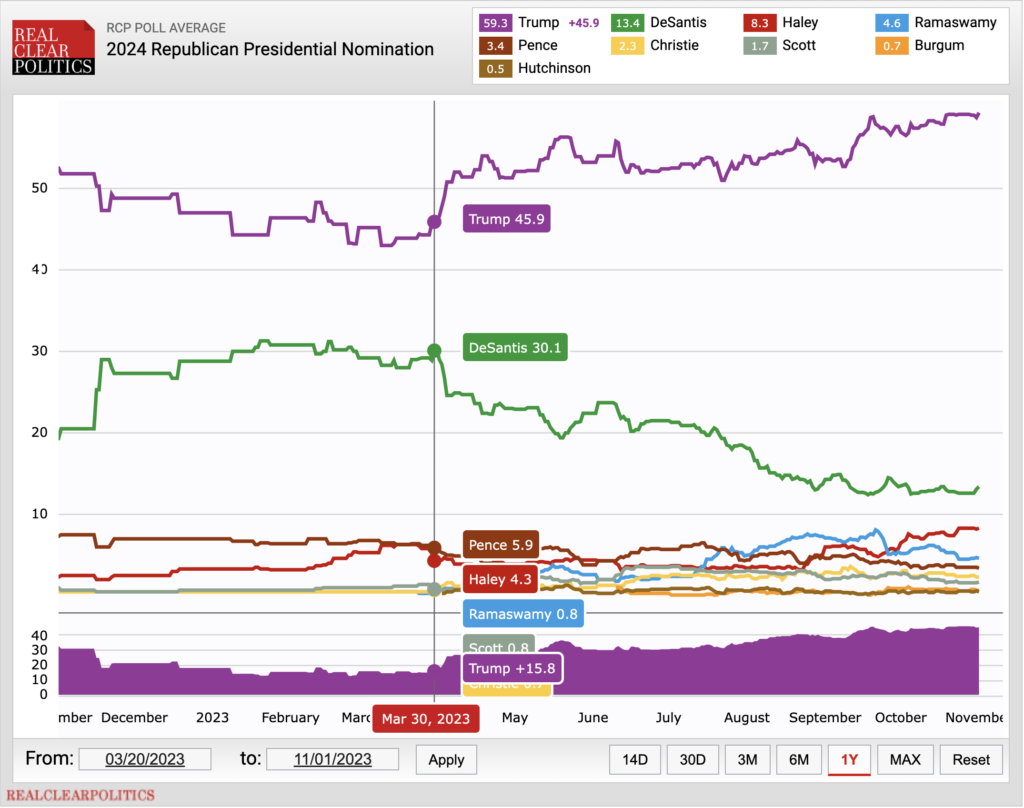
For many Americans, including nearly the entirety of the Republican Party, what the Department of Justice and Democrat prosecutors up and down the Eastern Seaboard are doing to Trump, his family, and his political party is a dystopian and authoritarian nightmare. In that context, giving any aid and comfort to his prosecutors is viewed as a betrayal and lack of judgment.
It wasn’t just that statement in March. A few days ago, MSNBC’s Willie Geist pressed DeSantis on whether he would support Trump if the former president were “convicted of attempting to overturn the 2020 election.” Rather than push back on the inaccuracy of Geist’s description of the charges against Trump, or talk about the evils of weaponizing the Justice Department to attack political opponents, DeSantis said that Republican voters would oppose Trump if Democrat lawfare against him were successful.
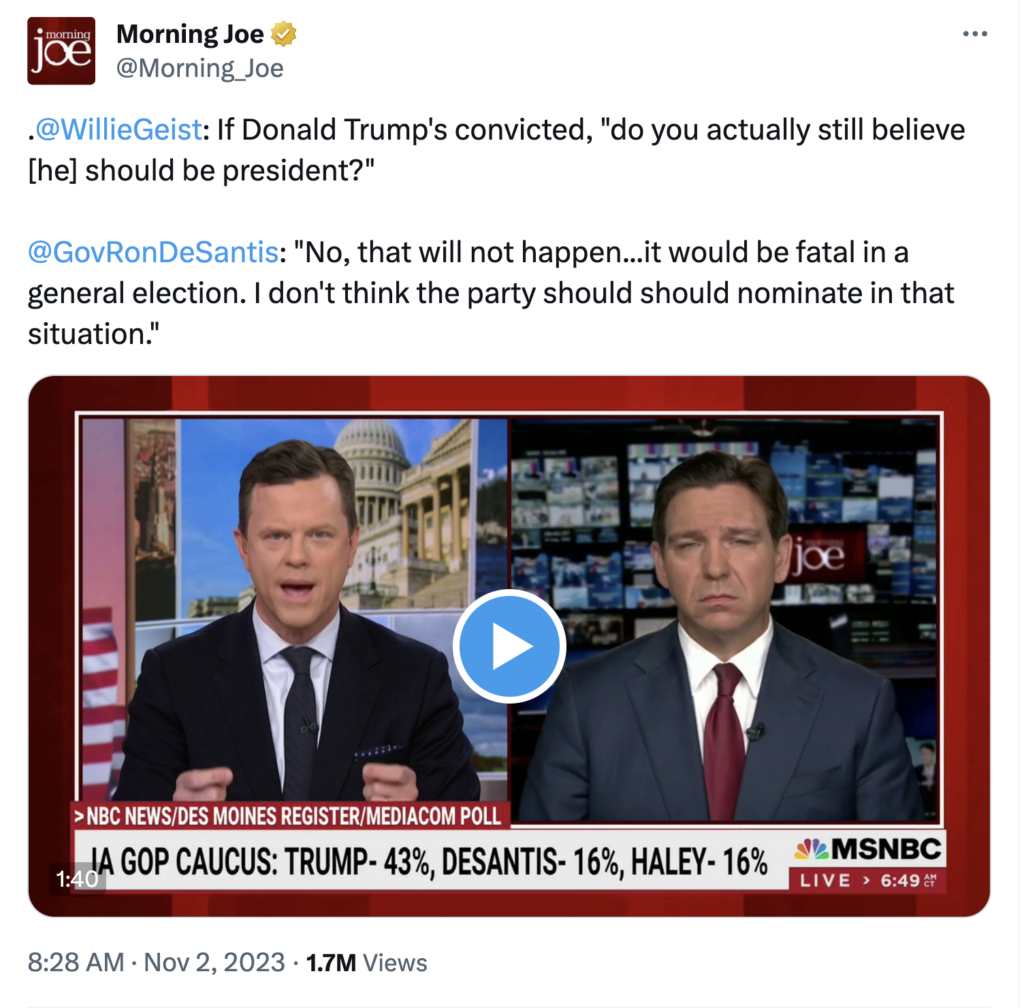
He certainly has every right to campaign to win the Republican primary by arguing that Democrats’ lawfare against Trump should dictate Republican voters’ choices, but it’s not a good way to demonstrate that he even remotely understands the threat to the republic itself that is posed by these political injunctions.
To be fair, it wasn’t just the lawsuit rhetoric that hurt DeSantis with Republican voters beginning in March. Late March was also the point at which he flip-flopped on the Ukraine War.
On March 14, Tucker Carlson, then of Fox News, posted responses he received about the Ukraine War from various presidential candidates. He also highlighted those responses on his television program. DeSantis’ response was excellent and can be read here. DeSantis said the United States should put its national interest ahead of a territorial dispute with Russia, that the conflict itself was not of vital national interest, and that the U.S. should avoid subsidizing a prolonged conflict rather than working for peace.
The statement immediately received pushback from media outlets who have campaigned for increased U.S. involvement in the conflict. “DeSantis rattles establishment GOP after saying US interest in Ukraine-Russia war is not ‘vital,’” read one headline.
The strong push against candidates who align themselves with a national interest foreign policy over neocon interventionism is in no way surprising. The pressure to appease the D.C. foreign policy “blob,” as it is called, is overwhelming. The test, then, was to see if he could withstand the pressure.
Within days, he had been forced into a walkback of his comments, adding that he believed the Russian president was a war criminal. “Ron DeSantis forced into U-turn after calling Ukraine war ‘territorial dispute’: Likely Republican contender for White House says remark was ‘mischaracterised’ but calls Vladimir Putin a war criminal,” said The Guardian.
It was the wrong direction to move, particularly as public opinion in support of the proxy war against Russia has only continued to plummet in the months since.
Ron DeSantis is in second place in Iowa, 31.5 points behind Trump, according to the RealClearPolitics polling average. The caucuses are still two months away. The governor has put his energy into having an overwhelming ground game in Iowa and New Hampshire, with the idea that he can show Trump is vulnerable with a surprise couple of wins.
This week, Iowa Gov. Kim Reynolds, who has unofficially supported DeSantis for months, is expected to officially endorse him ahead of her state’s caucuses in January. He continues to be the most effective conservative governor in the country. His pitch was supposed to be that he has MAGA policies without MAGA baggage, and is effective at getting conservative policies implemented.
But if he is going to try to get the campaign back on track, he should understand how his own comments have made him less attractive to voters who desire his political success, whether now or in the future.
